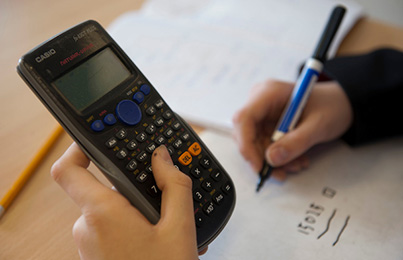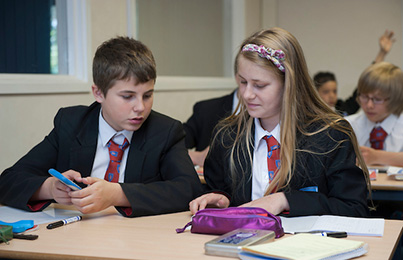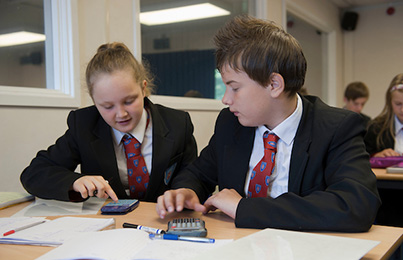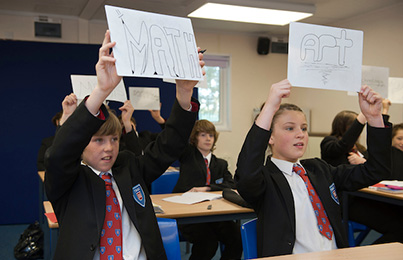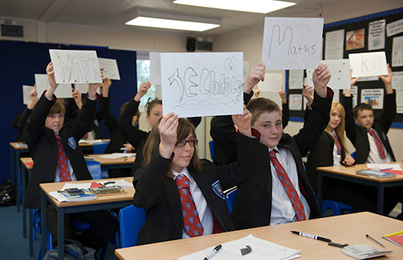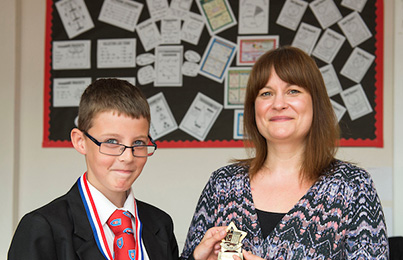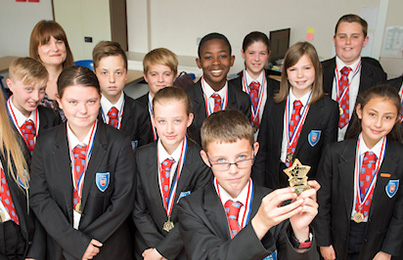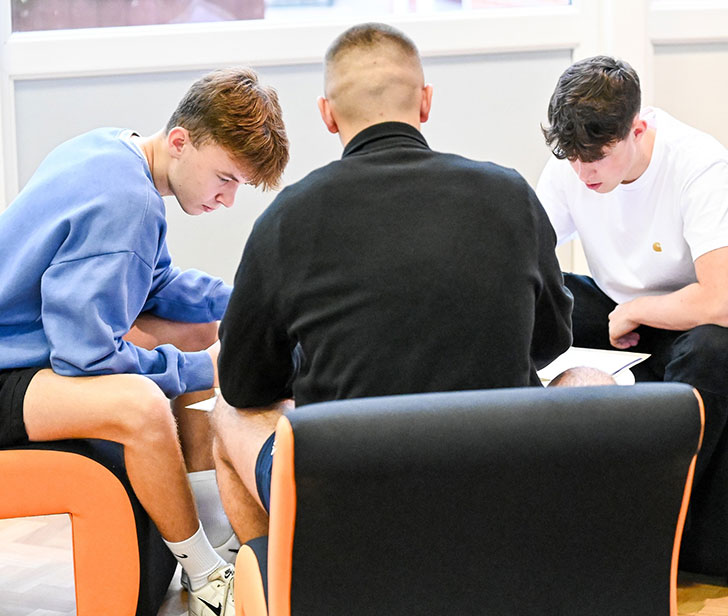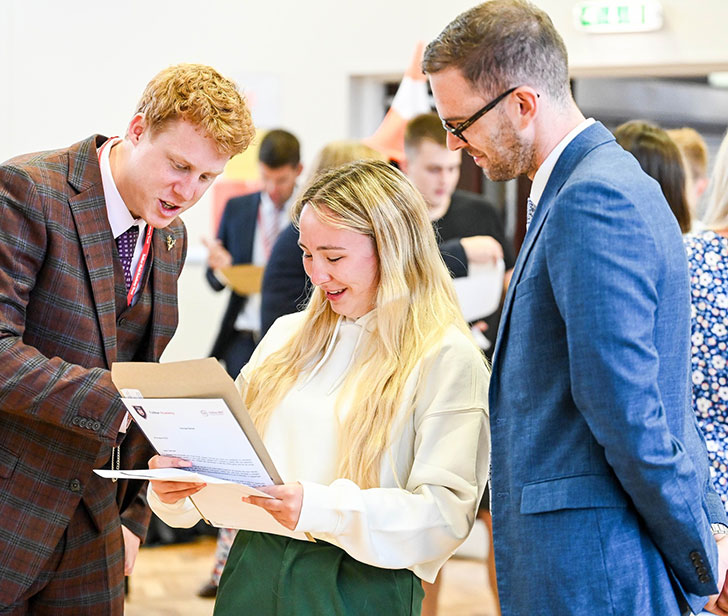Mathematics
Curriculum Intent, Implementation & Impact
- Mathematics
- Ethos & Values
- Knowledge & Skills
- Resources & Facilities
- Courses & Qualifications
- Learning Outside The Classroom
- Where Does This Take Me In The Future?
Mathematics
Mathematics is a key subject in the Academy. It develops mathematical thinking which is essential in the workplace, business and finance - and for personal decision-making. Mathematics is necessary for understanding science, engineering, technology and economics. Pupils develop functionality in mathematics and financial capability and are able to think independently, reason, solve problems and assess risk. Mathematics is creative and the language of mathematics is international.
Please take the time to explore these pages, to learn more about what our Mathematics Curriculum Area has to offer.
Ethos & Values
The aim of the Mathematics Curriculum Area is that students will develop:
- An appreciation of the place of mathematics in society, including historical and cultural influences.
- An ability to think mathematically - precisely, logically and creatively.
- A willingness and ability to work independently and co-operatively.
- An ability to understand mathematical ideas and to communicate them in a variety of modes.
- An appreciation of the interdependence of different branches of mathematics.
- An appreciation of the ways mathematics is used.
- The knowledge, skills and understanding needed to apply a range of mathematical concepts to situations which may arise in their own lives.
- The skill to investigate mathematical ideas and to test and prove their own hypotheses.
- An ability to use mathematics across the curriculum.
- A firm foundation for appropriate further study.
In addition:
- All members of the department uphold high expectations of their students and deliver high quality lessons, through differentiated teaching and learning strategies.
- Every child will be given the opportunity to maximise their mathematical development, by providing educational experiences appropriate to the age, ability and needs of our students.
- A focus is held within the department to enhance children's quality of learning, by raising attainment through effective targeting and regular assessment.
Knowledge & Skills
Students need to deepen and broaden their knowledge, skills and understanding by developing competence, creativity, applications and implications, critical understanding, representation and analysis.
- They will develop mathematical communication by solving problems using mathematical methods including ICT.
- They will have the opportunity to conduct investigations, thus developing creative thinking by solving unfamiliar problems, posing questions and producing reasoned arguments.
- They will learn about the historical and cultural development of mathematics.
- They will represent problems using appropriate variables, symbols, diagrams and models.
- They will also learn how to make and justify conjectures and generalisations.
- They will experience a wide range of learning styles from enthusiastic specialist teachers that incorporate both individual and group activities.
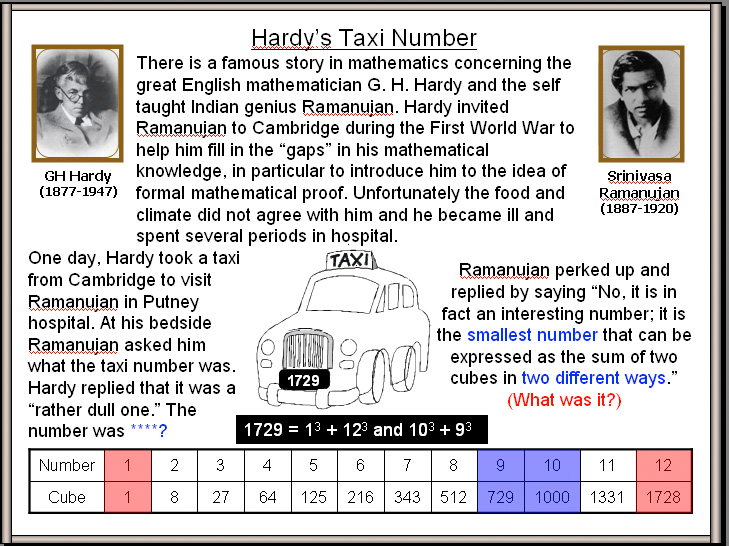
Resources & Facilities
Every classroom in the Curriculum Area contains an interactive whiteboard, a selection of educational textbooks and furniture to accommodate up to 30 students. Pupils from Years 7 and 8 will be able to make regular use of the new Pearson Key Stage 3 textbook series. This series provides exercises, ideas and topics built around the curriculum for Key Stage 3. Alternatively, in Years 9, 10 and 11, students will focus on the completion of their GCSE Key Stage 4 qualification and will reference their work from the new Higher and Foundation Tier Edexcel books from Pearson.
In addition, there are currently two computer rooms, allocated solely to the Curriculum Area. Each of these rooms contains top quality multi-media PCs and other audio-visual equipment, including an interactive whiteboard. This access provides an opportunity for our students to use a wealth of electronic resources, designed and bought by the department to expand and aide our students' mathematical development.
In all the classrooms, wall space is positively used to create informative and stimulating displays that reflect the topics that are taught across both Key Stages. Likewise, we make good use of corridor displays of students' work, whilst also including real world applications of mathematics.
Courses & Qualifications
Key Stage 3
Students follow the curriculum in mathematics.
Key Stage 4
Students follow the Edexcel GCSE Linear course.
Students take a tier of entry appropriate to their ability. Foundation tier covers GCSE levels 1 to 5 and Higher tier covers GCSE levels 4 to 9.
Advanced Level
Advanced Level awards comprise of Pure Maths and Applied Maths, the latter of which involves Statistics and Mechanics topics.
(More detail on this course can be found on the Sixth Form area of the website.)
Learning Outside The Classroom
- The UKMT (United Kingdom Maths Challenge) is the biggest national challenge with 4000 schools taking part and some 580 000 students. We enter students for the Senior (Years 12 and 13), Intermediate (Years 9, 10, 11), and Junior (Years 7 and 8) challenges. The competition is part of our More Able programme and is a challenge for our students.
Revision
- GCSE students are offered consistent support towards their examinations by way of after Academy after school revision classes, weekend revision classes and also crammer courses provided during school holidays where possible.
Where Does This Take Me In The Future?
- Mathematics provides skills for life, which is important for all members of a modern society.
- It provides the tools for students to develop skills in science, engineering, technology, and economics.
- It prepares students to move into the workplace. The skills developed within the study of Mathematics are amongst some of the most highly rated by employers, such as the ability to collect, represent and interpret data.
- The study of Mathematics enhances students' skills needed to undertake a wide range of qualifications and careers such as access to apprenticeships, enrolment into the forces, engineering, computer game designing, meteorology, medical statistics and teaching.
- Mathematics helps students to think and function independently and to become financially capable.
- It also provides progression into Higher and Further Education.
